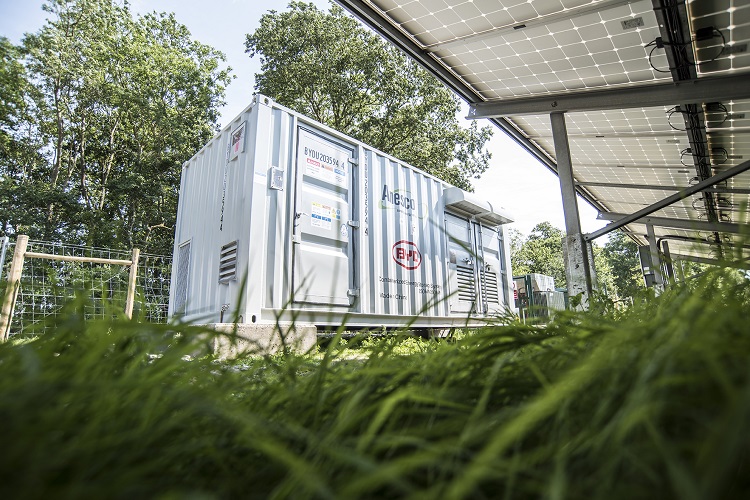The U.K.’s business and energy secretary Greg Clark will reveal today plans for a £246 million ($320 million) investment in battery technology over the next four years.
The scheme will focus spending on research and innovation in battery storage technology, with the key sectors of renewable energy and electric vehicles (EVs) poised to be the chief beneficiaries of the strategy.
Clark said over the weekend that the U.K. currently sources 14% of its electricity from renewable sources such as wind and solar power, “but this intermittency does add costs”. This battery strategy is part of a nationwide industrial strategy launched in January and designed to place investment in science and research at the heart of the country’s energy transition.
A £45 million portion of the £246 million pot will be made available for a competition to make batteries more affordable and accessible. Further details of how this competition will function are likely to be unveiled this week by Clark. A further £25 million is expected to be earmarked for R&D into connected autonomous vehicles and driverless vehicles, both of which are likely to represent a growing sector of the EV industry. More tangibly, large batteries are to be installed at wind and solar power sites across the U.K. over the next few years.
“Batteries will form a cornerstone of a low carbon economy, whether in cars aircraft, consumer electronics or grid storage,” said Philip Nelson, chief executive of the Engineering and Physical Sciences Research Council. “To deliver the U.K.’s low-carbon economy we must consolidate and grow our capabilities in novel battery technology.”
Clark is expected to talk about how a concerted strategy can “bring together effort on areas of opportunity that have previously been in different sectors, or which require joining forces between entrepreneurs, scientists and researchers, industries and local and national government”.
The strategy will be delivered in four phases over the next four years, with the first phase called the Faraday Challenge – named after English scientist Michael Faraday, who contributed significantly to the study of electromagnetism and electrochemistry.
Popular content
The government will set up a “Battery Institute”; which will provide funds for companies that are seeking breakthroughs in battery R&D, and will – Clark hopes – enable Britain to play catch-up with storage pioneers Japan, South Korea, Germany and, increasingly, China.
By adding more flexible battery storage to the U.K. grid, an estimated 30% to 50% of fluctuations could be smoothed and averted, believes National Grid executive director Nicola Shaw. “We are at a moment of real change in the energy industry,” she told the BBC. “From an historic perspective, we created energy in big generating organizations that sent power to houses and their businesses.
“Now we are producing energy in those places – mostly with solar power.”
James Court, head of policy and external affairs at the Renewable Energy Association (REA), added: “The launch of a battery institute will help guide next-generation storage technologies through the hazards that lay between a good idea in a lab and actual deployment in homes and on solar farms.
“The U.K. is among the global leaders for battery technology, but for the handbrakes to be taken off we need to see the rules and regulations made in a different age updated for these new technologies and approaches, coupled with a renewed commitment to renewables. The market is changing quickly, yet reversals in policy have seen the U.K. slowing in areas such as solar and onshore wind which are now cheaper than fossil fuels. The government needs to remember that the success of batteries, renewables and smart technologies are all interlinked.”
This content is protected by copyright and may not be reused. If you want to cooperate with us and would like to reuse some of our content, please contact: editors@pv-magazine.com.


1.7 Trillion debt we cant afford it.
Correctly mentioned @Clark that the U.K. currently sources 14% of its electricity from renewable sources such as wind and solar power, “but this intermittency does add costs”. Yes ,U.K. is among the global leaders for battery technology but the market is changing quickly, yet reversals in policy have seen the U.K. slowing in areas such as solar and onshore wind which are now cheaper than fossil fuels. Battery Storage Inverter Market is large and growing as per a report available with DecisionDatabases.com.